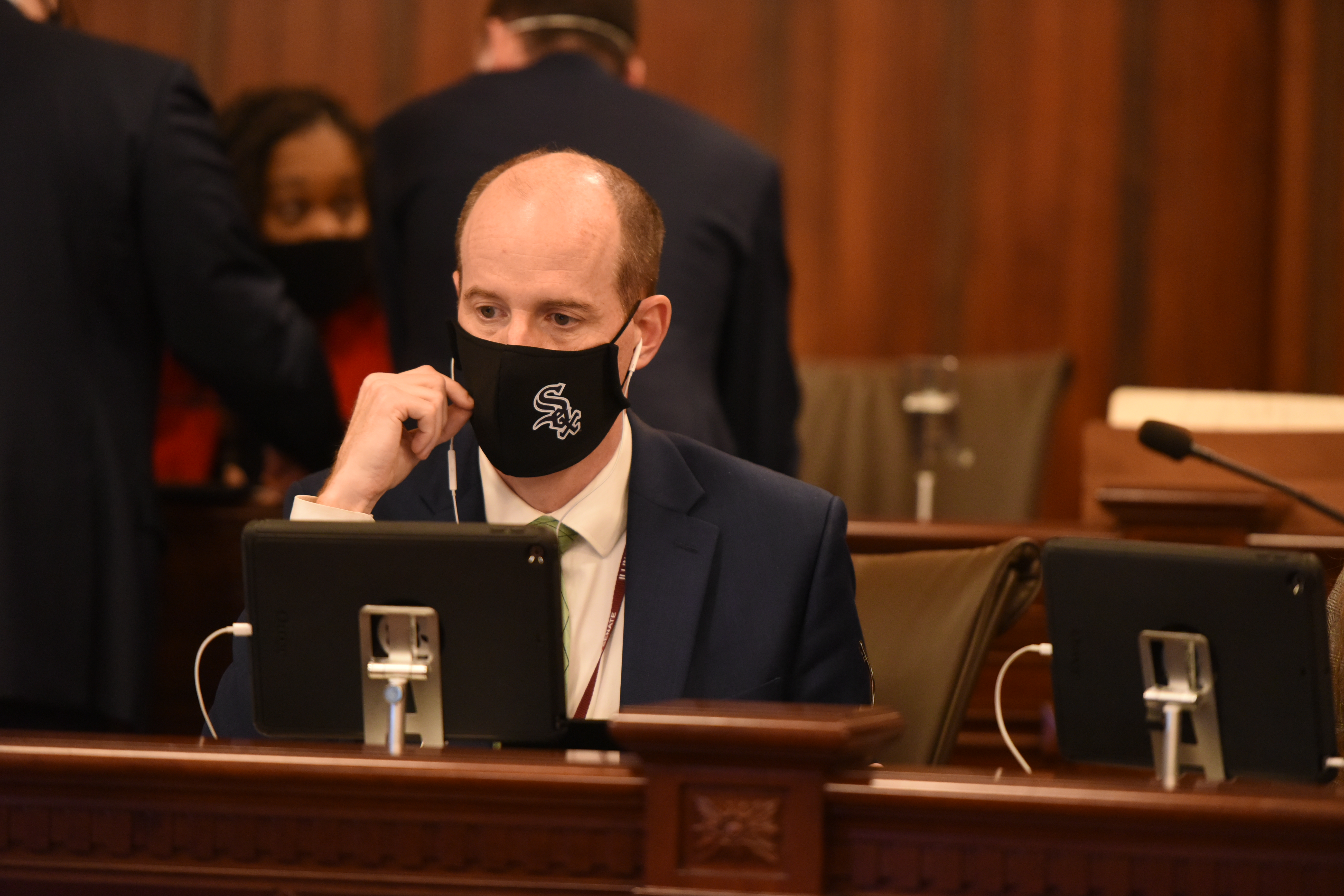- Details
- Category: Press Releases

SPRINGFIELD – State Senator Bill Cunningham provided the following statement after hearing the governor’s budget address Wednesday:
“The governor has presented a responsible budget plan that pays the state’s bills and meets our pension obligations. This fiscal stability will help allow the state’s economy to continue to grow.”
“The budget address is the first step in the budget negotiation process. I will be involved in the process over the next several months to make sure working families are put first.”
- Details
- Category: Press Releases
 EVERGREEN PARK – The Evergreen Park Public Library will receive nearly $10,000 in grant money to provide the community with vital education resources thanks to support from State Senator Bill Cunningham.
EVERGREEN PARK – The Evergreen Park Public Library will receive nearly $10,000 in grant money to provide the community with vital education resources thanks to support from State Senator Bill Cunningham.
“Libraries are necessary in giving access to knowledge,” said Cunningham, a Democrat who represents portions of Chicago and the southwest suburbs. “The funding granted to Evergreen Park Library will help it continue to provide a safe learning space for our community.”
The funding is allocated to libraries across the state to make upgrades, assist with the development of the local workforce and ensure the library stays open safely for families. The grant is comprised of both state and federal dollars.
“In a time with so many uncertainties, access to a library should remain a constant,” Cunningham opined. “I will never stop fighting for funding that benefits our children and working families.”
For a full list of libraries receiving a grant, click here.
- Details
- Category: News
SPRINGFIELD – Illinoisans will be able to register for online sports betting apps just in time for the NCAA March Madness basketball tournament thanks to a law championed by State Senator Bill Cunningham.
“Online registration is coming back for good,” said Cunningham, a Democrat who represents portions of Chicago and the southwest suburbs, who was the chief senate sponsor of the bill. “It’s time to give people a better opportunity to place sports wagers, and I’m glad we were able to do so by March Madness.”
Current Illinois sports betting law allows online sportsbooks and online wagering on mobile devices via apps, but it does not allow for online registration. Illinois residents have to visit one of the brick-and-mortar casino locations for registration. However, under the new law, Illinoisans will be able to complete online registration on any of the six online sportsbook platforms starting March 5, 2022.
In addition to the official March 5 date for online registration, fans of Illinois sports will have the chance to place a wager on Illinois college teams. Wagers on Illinois college teams will be limited in scope as they can only be placed at a brick-and-mortar location and live-game wagering will be removed to protect players.
“Many legislators received complaints earlier this year from constituents who were upset they could not wager on the Illinois-Loyola second-round matchup in the NCAA tournament,” said Cunningham. “This law is not only good for Illinois sport bettors, it is good for the fiscal health of our state.”
In its first full fiscal year of operations, sports wagering in Illinois generated approximately $380 million in adjusted gross receipts. At the 15% tax rate, $57 million in tax revenues was collected. Revenues from this tax are transferred to the Capital Projects Fund, which is used to finance statewide road and public building construction projects.
House Bill 3136 takes immediate effect.
- Details
- Category: Press Releases
 CHICAGO - State Senator Bill Cunningham congratulated seven businesses in the communities he represents that have already received more than $200,000 in Back to Business grants, and he encouraged more local entrepreneurs to apply.
CHICAGO - State Senator Bill Cunningham congratulated seven businesses in the communities he represents that have already received more than $200,000 in Back to Business grants, and he encouraged more local entrepreneurs to apply.
“I talked to many small business owners who struggled – and in some cases are still struggling – during the ongoing pandemic,” said Cunningham, a Democrat who represents portions of Chicago and the southwest suburbs. “We created the Back to Business Program to help people like them keep their doors open and build back even stronger. It’s not too late to apply!”
The businesses in the 18th Legislative District that have successfully received grants illustrate the diversity of the area’s economy and how many different enterprises are eligible for the B2B program. They include restaurants, a salon, transportation companies, and an art business.
More Articles …
Page 21 of 86




